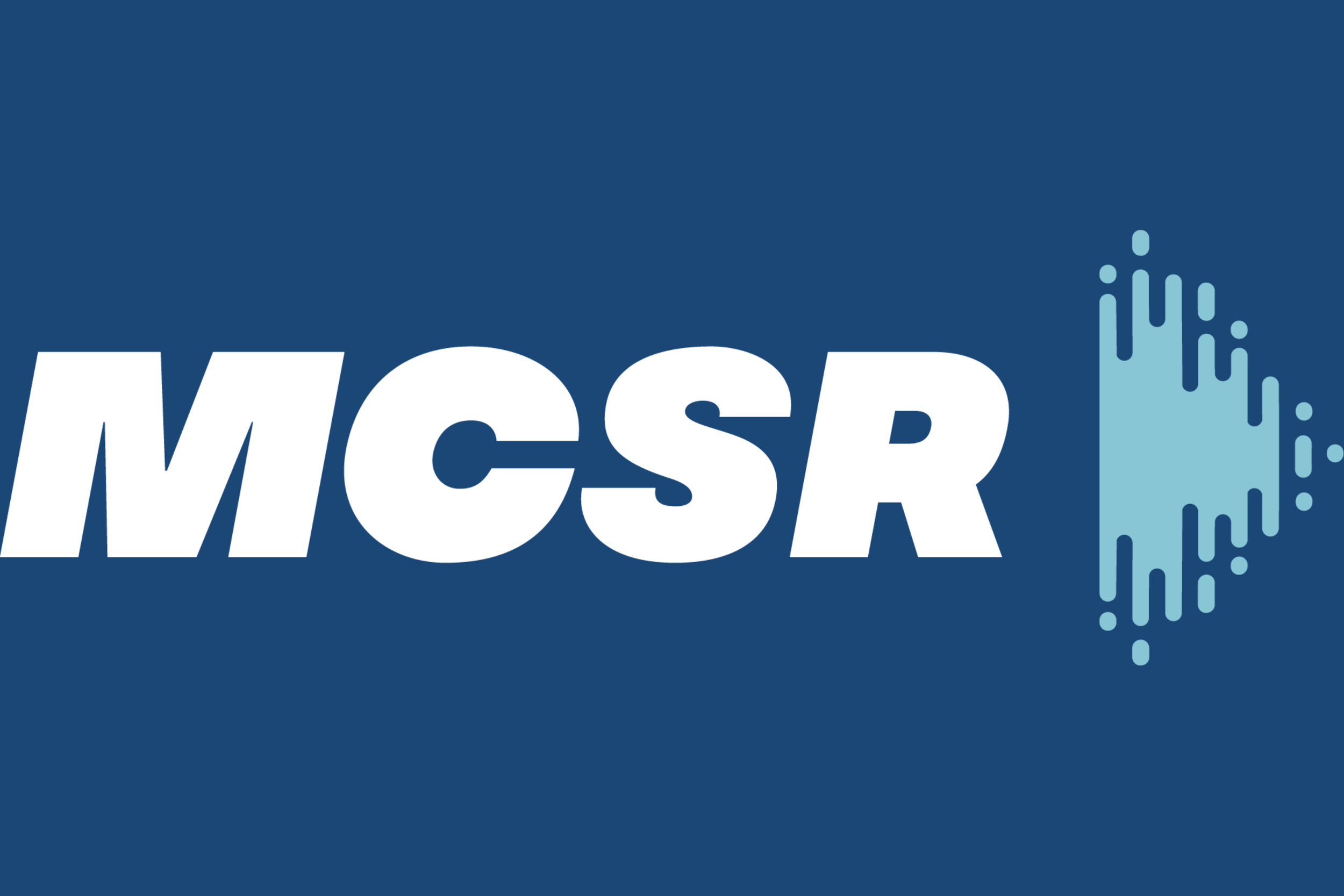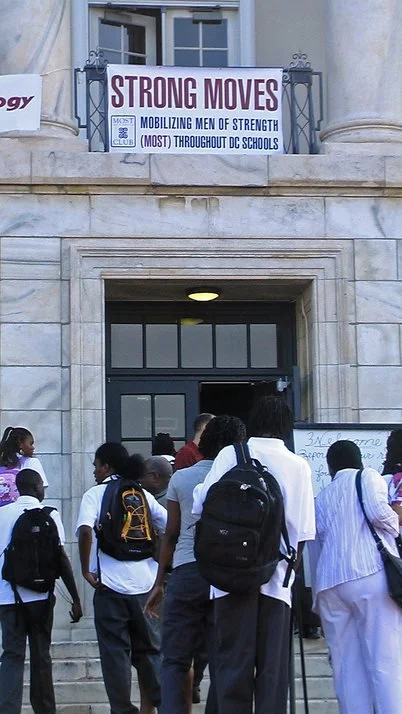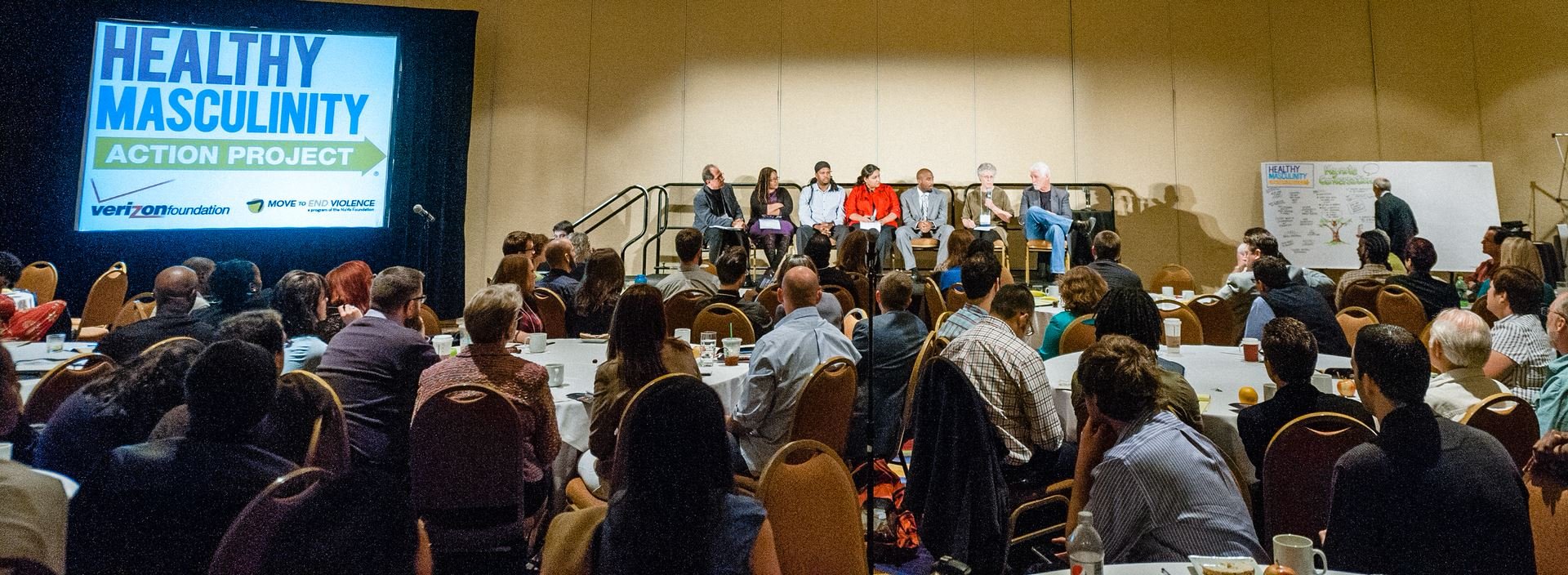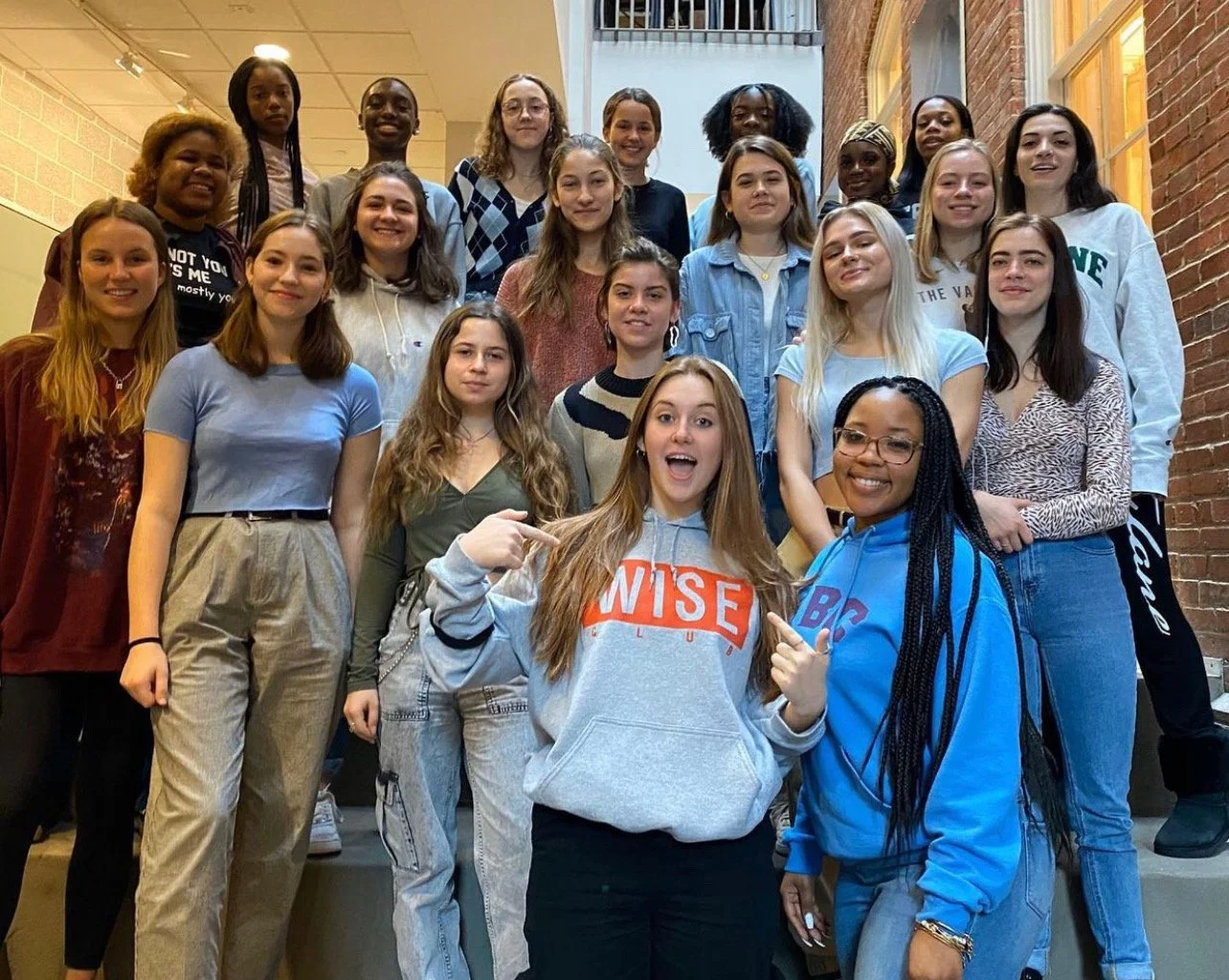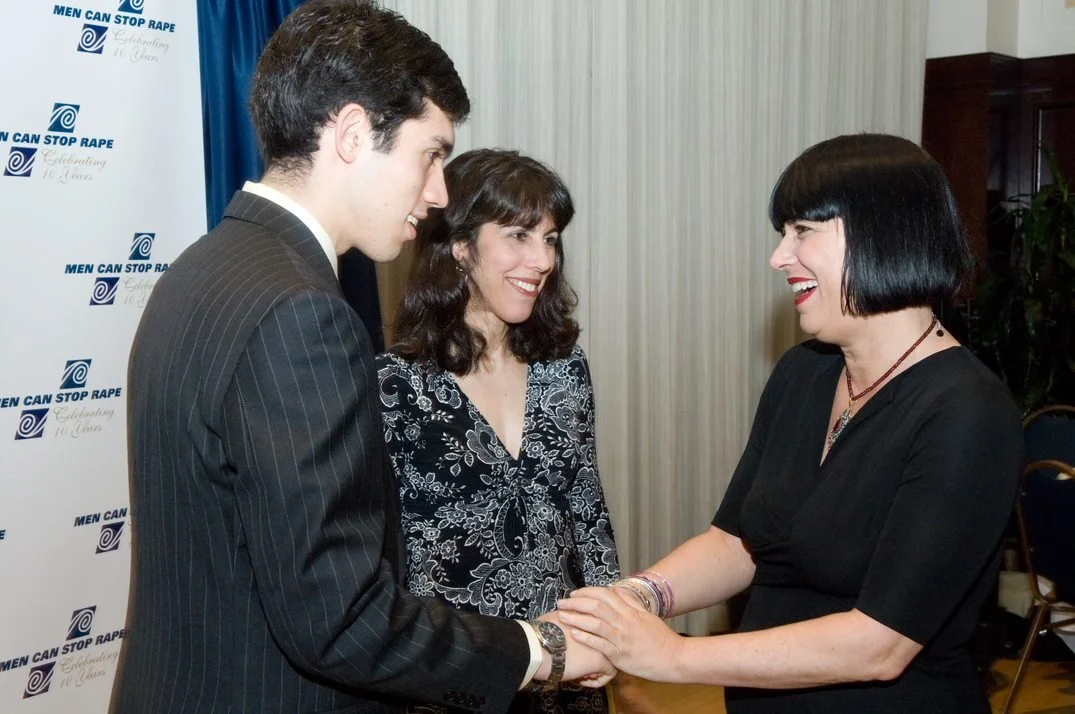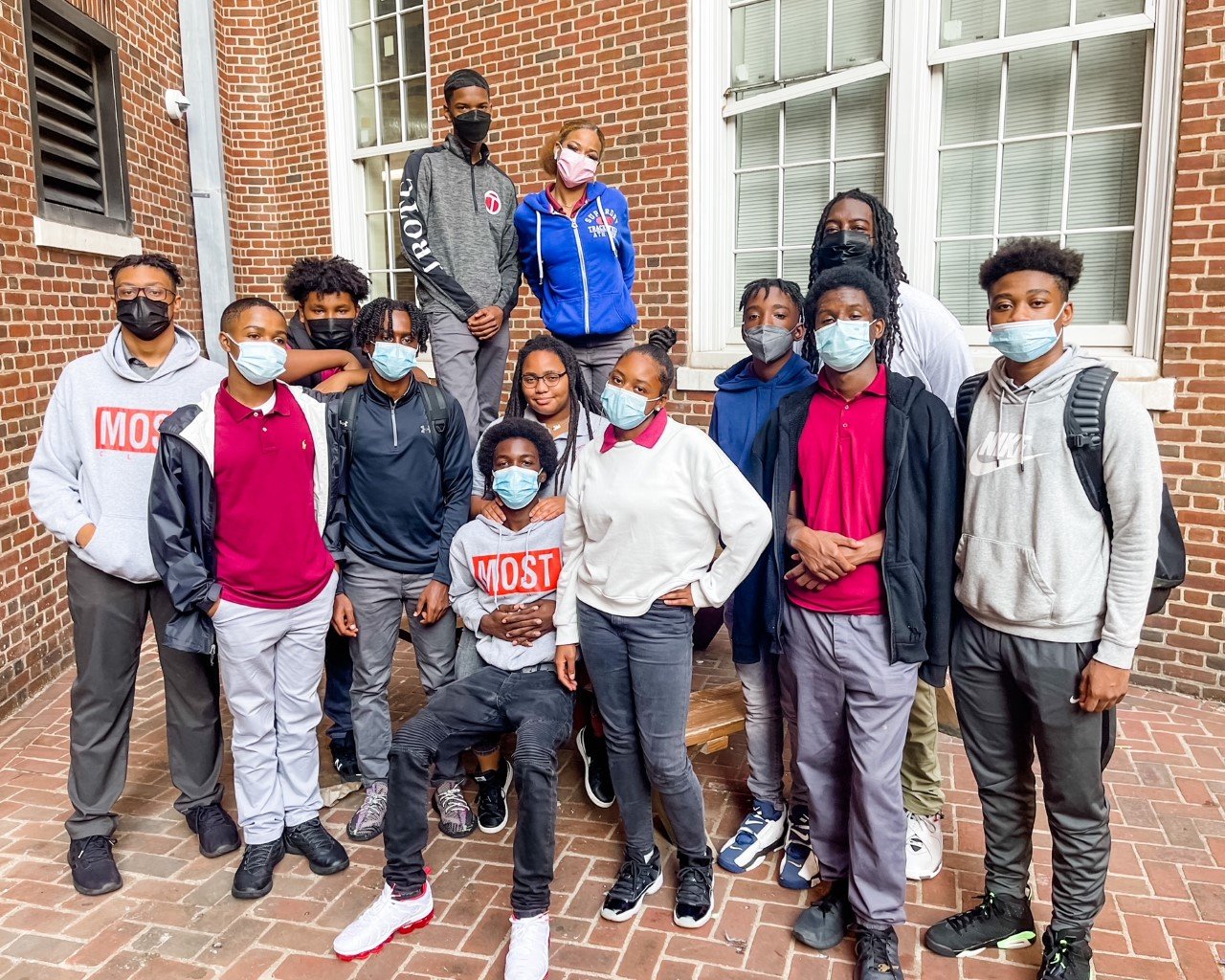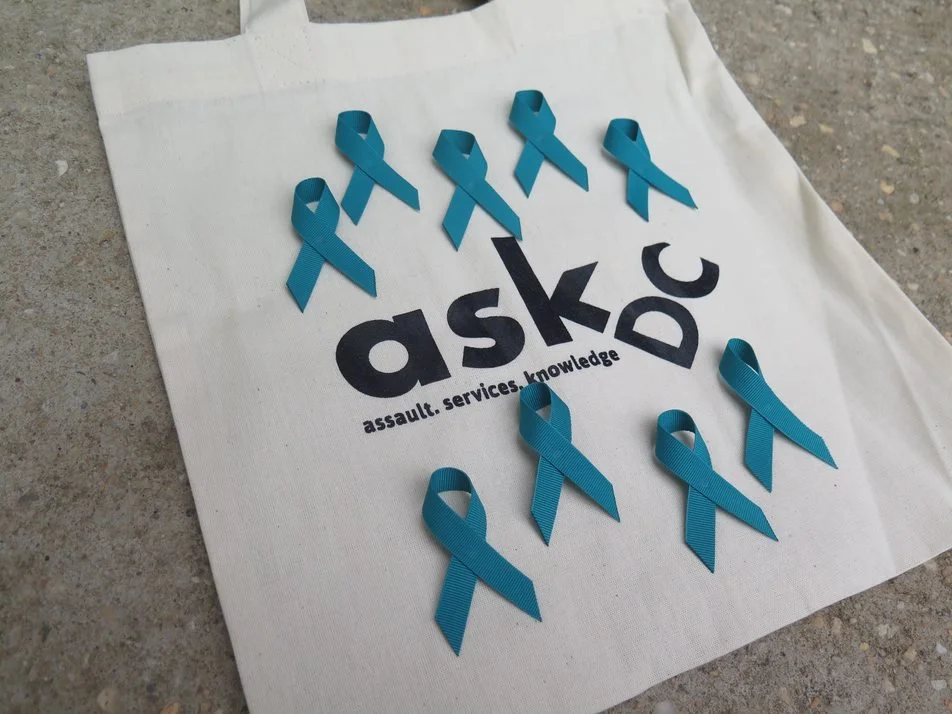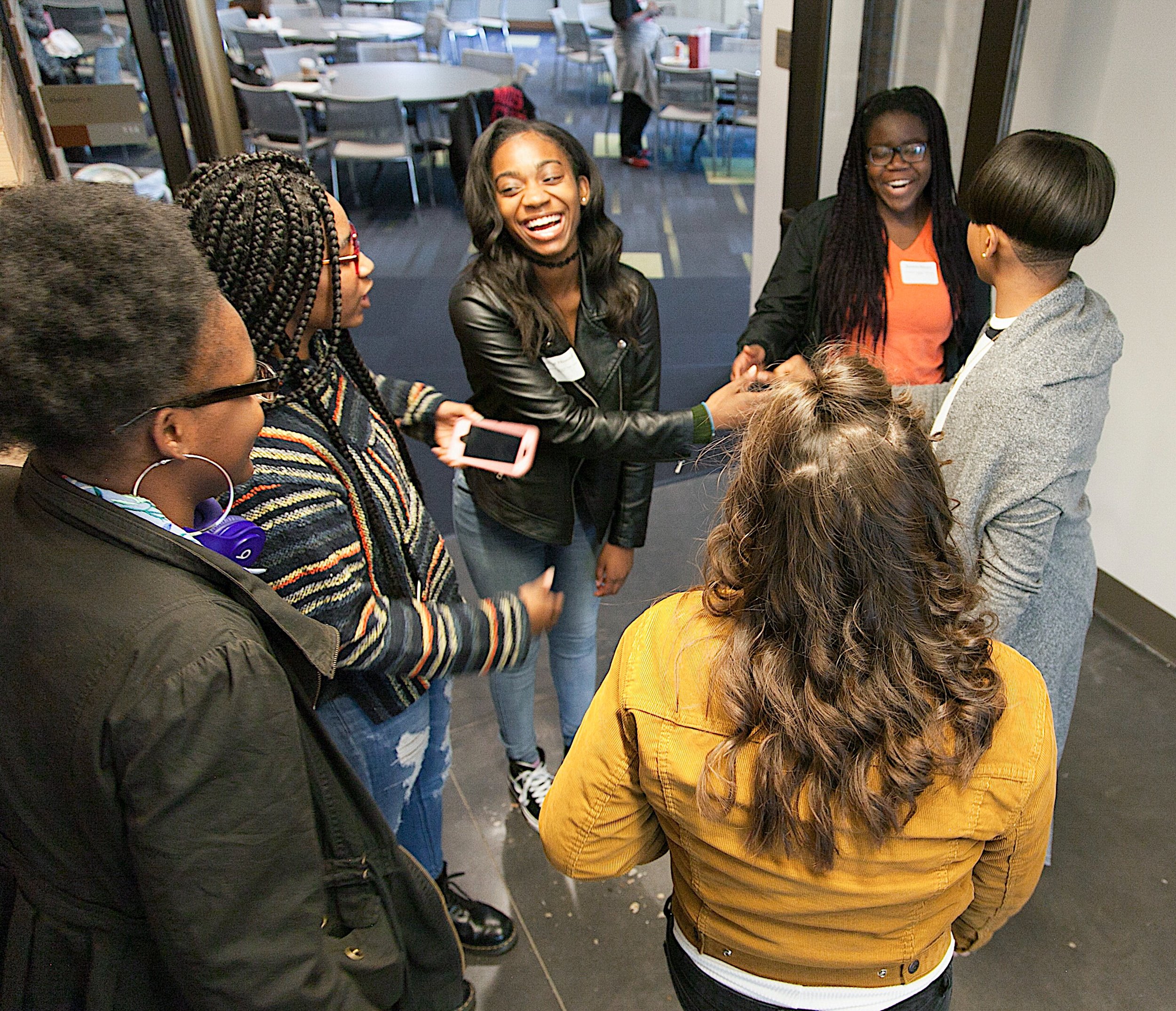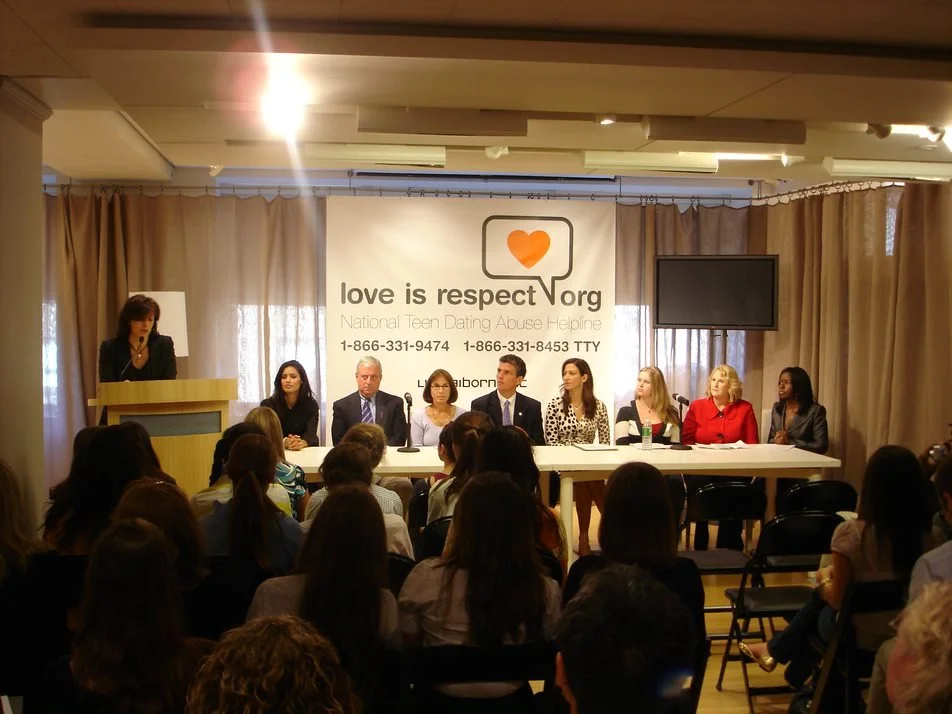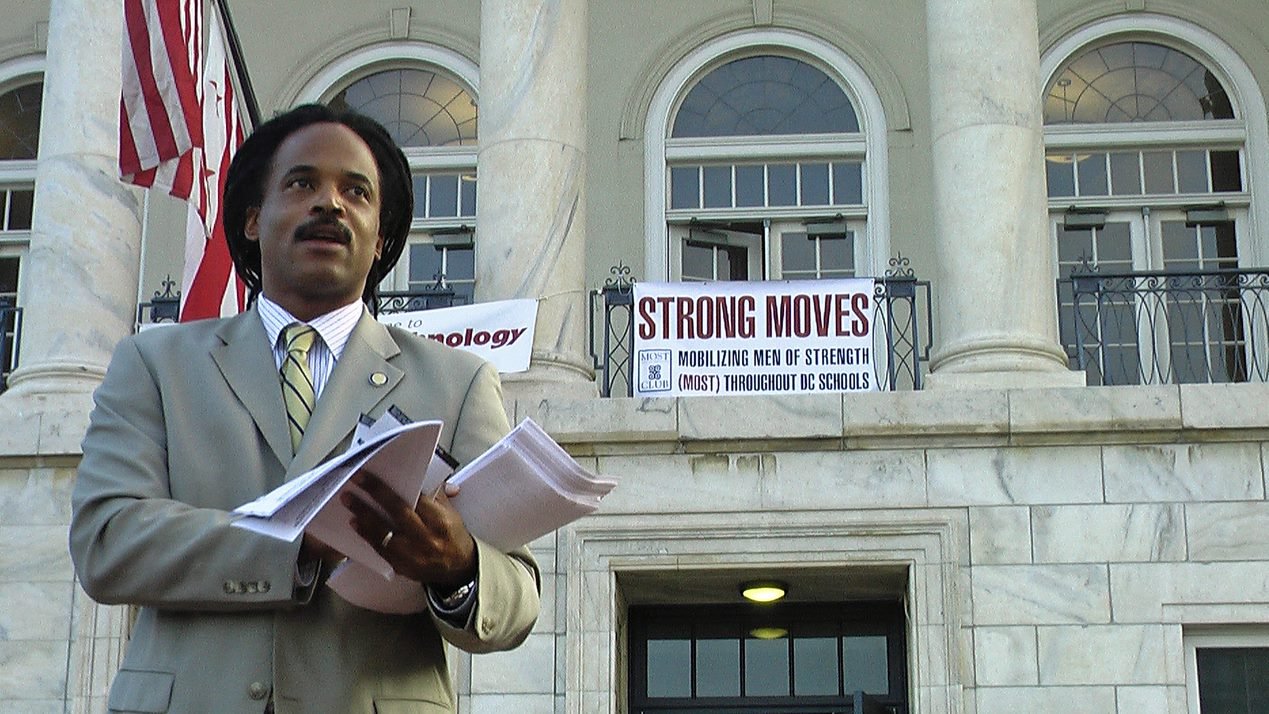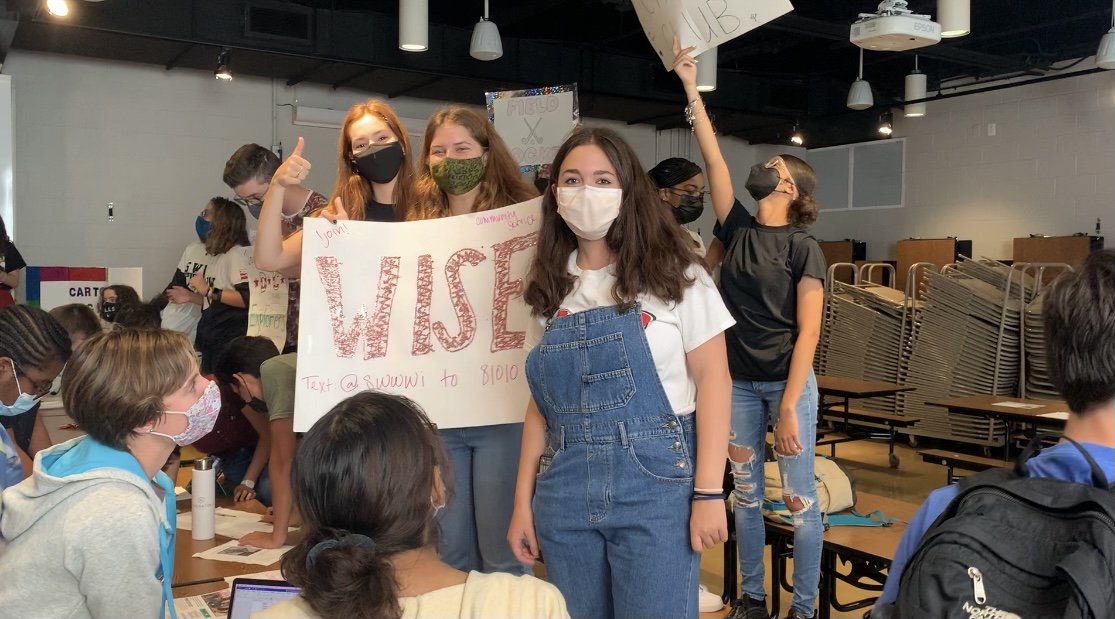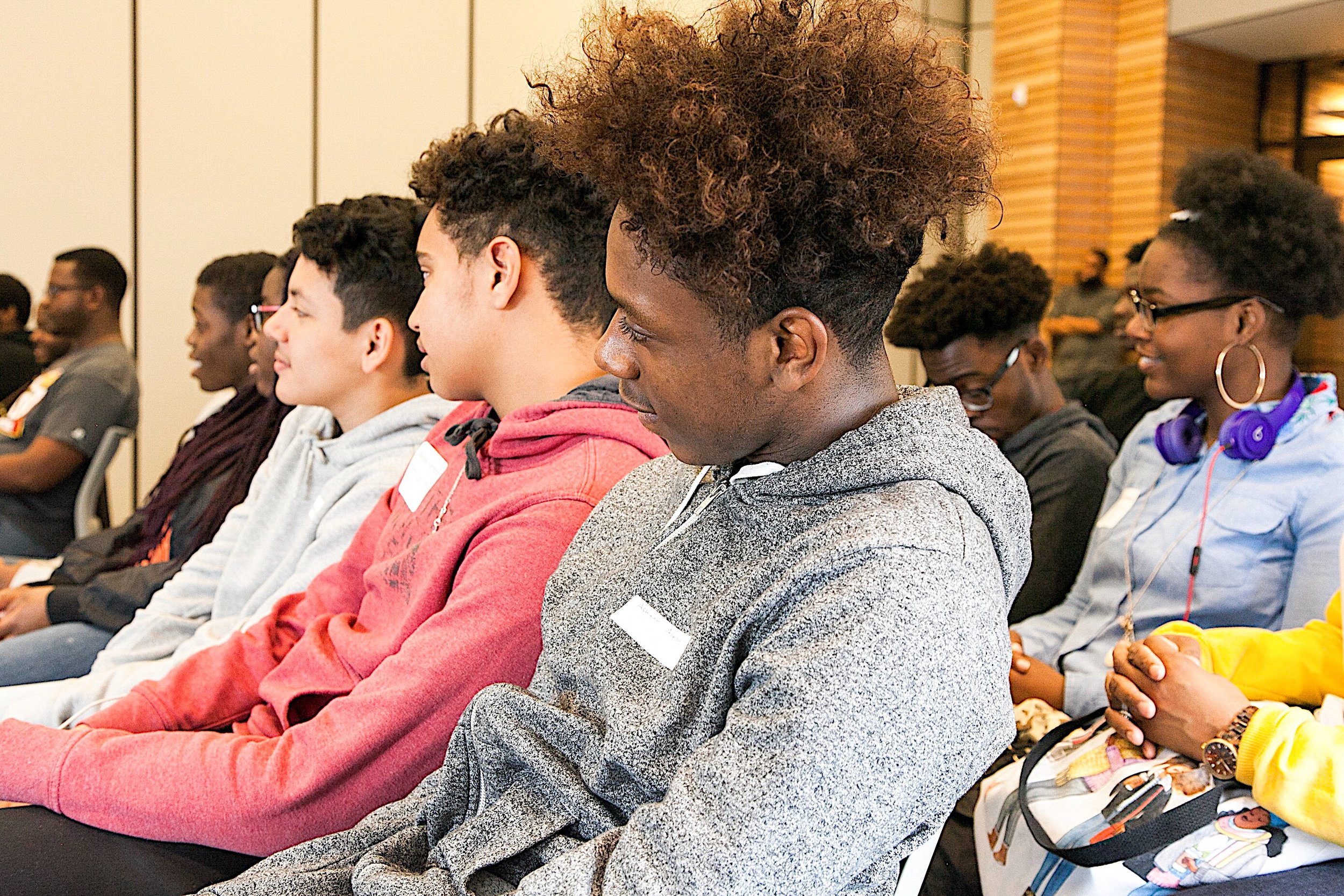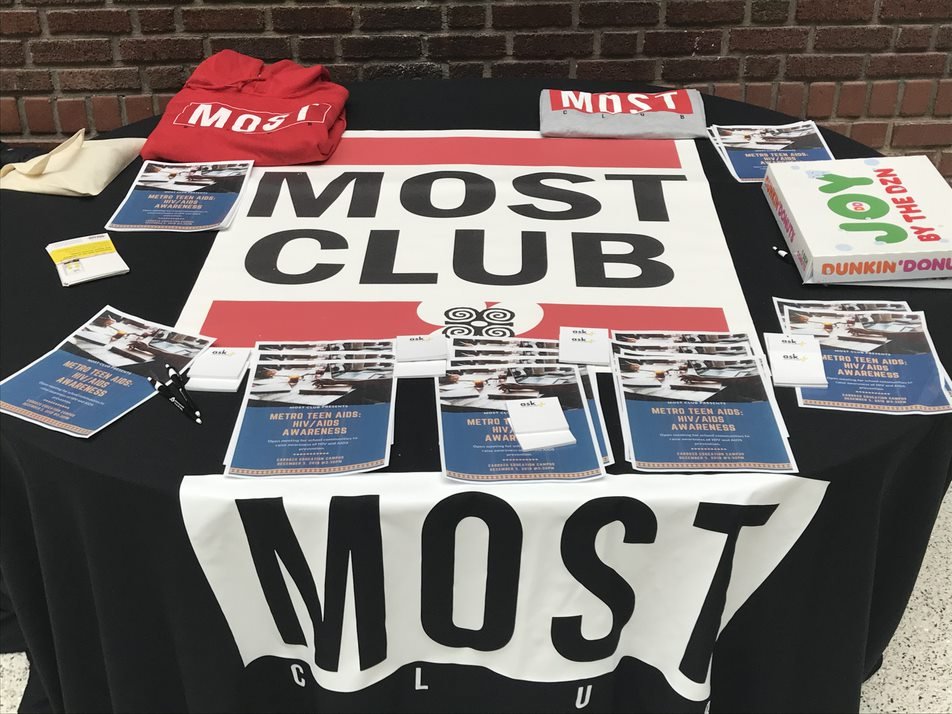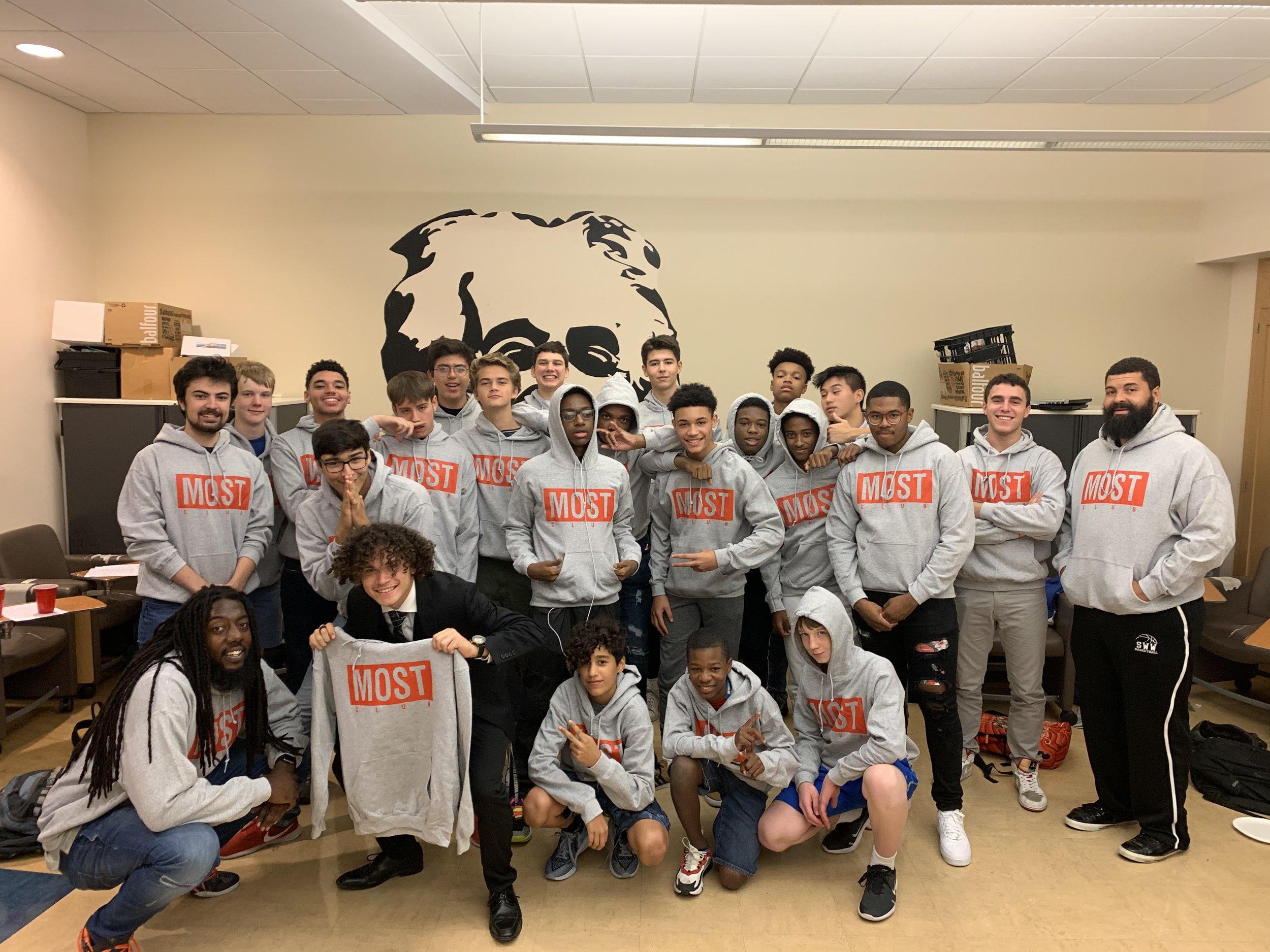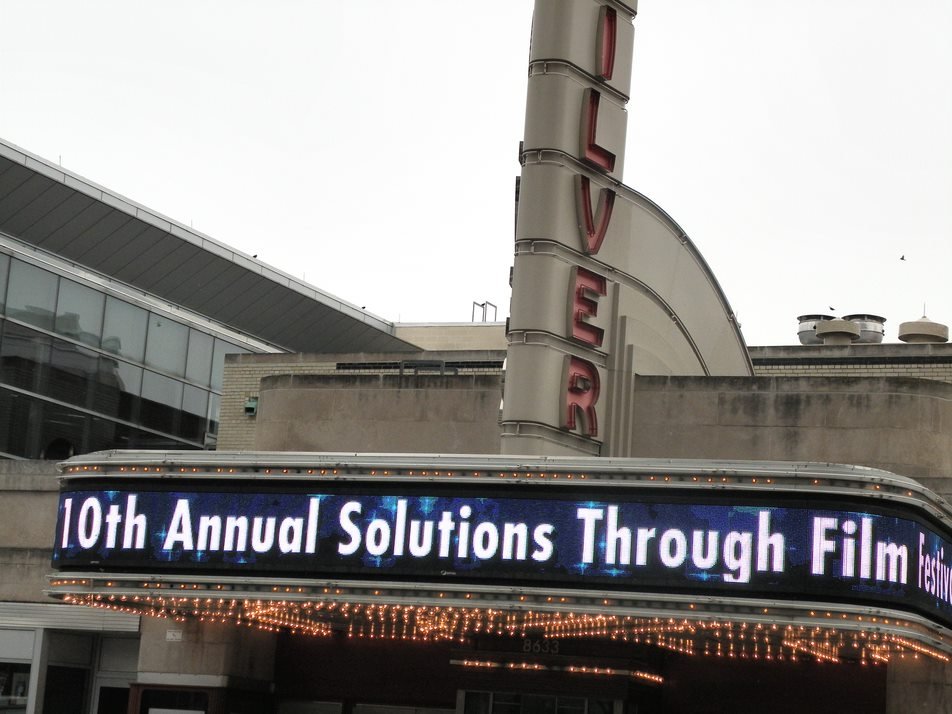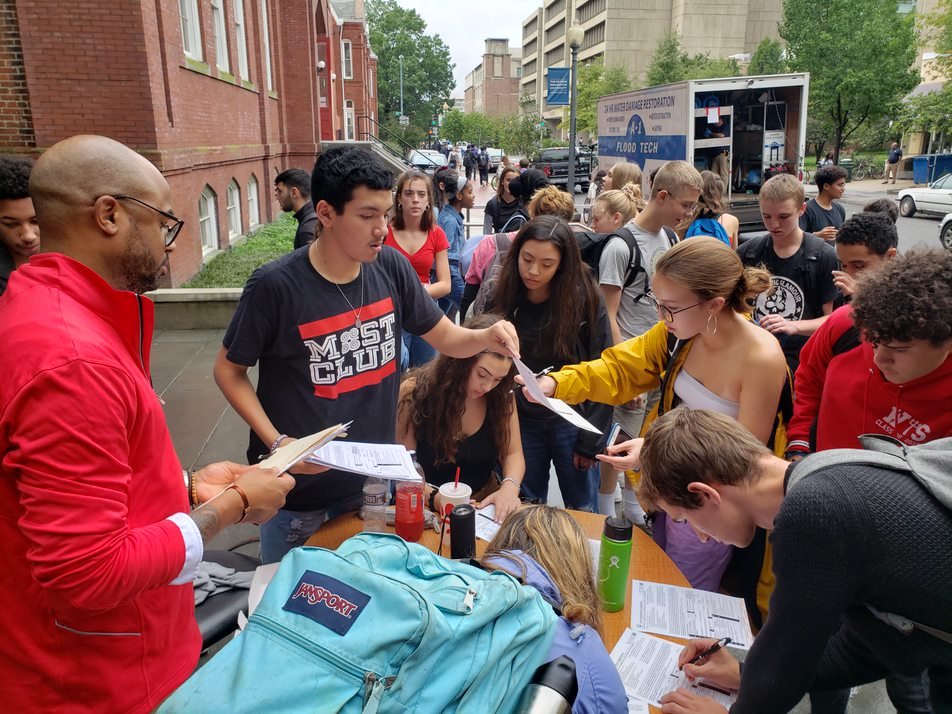We Set Out to Prevent Men’s Violence Against Women and Girls 25 Years Ago. Here’s What We’ve Learned.
On this day in January 1997, MCSR began mobilizing men and boys to use their strength for creating cultures free from violence. Twenty-five years later, every day in service of our vision to institutionalize primary prevention of men’s violence against women and girls brings us to a safer tomorrow for all.
While there’s still ground to cover to fully realize cultures free from violence, we believe that applying the following lessons learned will take us further, faster, alongside our global network of partners, for the next 25 years.
It Is Easier to Build Strong Children Than to Repair Broken Men
Social reformer, abolitionist, writer and statesman Frederick Douglass once said, “It is easier to build strong children than to repair broken men.” A big part of MCSR’s early work to engage young men and boys was conducting numerous presentations in Washington, D.C. high schools. By 1999, it was clear: The limitations of our one-workshop model stood in the way of truly seeding change. We needed more time to go deep. So, when the Ballou Boys and Girls Club of Greater Washington called, their ask for a standard presentation became our pitch for five or more workshops. The Boys and Girls Club greenlit a 10-week project we named the Men of Strength (MOST) Club, and meetings began in January 2000.
Within a year, the number of MOST Clubs grew from one to four. By 2007, the number jumped to 16 when MCSR launched the Strong Moves initiative, placing the MOST Club in every public high school in the District of Columbia—the first citywide effort of its kind in the country. Today, the Club’s curriculum stands as a national model for mobilizing young men to prevent violence against women and girls, having served to date all eight District of Columbia wards, communities in 32 states, and two international countries.
We value evaluation as part of ensuring that we serve MOST Club members in a way that is transformative. In 2005, the U.S. Centers for Disease Control and Prevention identified the MOST Club as among the top four gender violence prevention programs in the country and initiated a two-year project to evaluate the D.C. Clubs’ impact. Our commitment to evaluation continues with a second CDC-funded evaluation project currently in process, assessing the effectiveness of the Club at sites around the country. Year after year, members report graduating with an appreciation for the Club’s safe space to gather with other young men, bonded by a collective commitment to be peer leaders and a deeper understanding of the ways traditional masculinity contributes to sexual assault and other forms of men's violence.
When a Good Message Lands, Take It Far
After the early years of local workshops with youth and community leaders, our organization turned its attention to developing its first media campaign. Local school administrators, faculty, staff, and other partners contributed to the effort, which later rolled out in all of D.C.’s 16 public high schools. For the first time in the history of the nation’s capital, bus shelters, bus side ads, and posters in school hallways and classrooms declared that young men could be strong without using intimidation, force, or violence.
And when the community education project ended in D.C., the posters were sold across the country, reaching boys and young men everywhere. The Virginia Department of Health was the first in a long line of more than 30 government agencies and state coalitions to license and launch MCSR campaigns statewide. Internationally, MCSR entered a licensing agreement with EngenderHealth for the South African Men as Partners Network and the Western Cape Office on the Status of Women. Posters in English, Afrikaans, and isiXhosa, featuring local photography and models, reached men across South Africa while coinciding with the worldwide 16 Days of Activism Against Gender Violence campaign. Twenty-nine additional countries followed in South Africa’s footsteps.
To Go Far, Go Together
Because changing social norms cannot be done alone, we believe in maximizing impact through collaboration. That’s why we’ve partnered on citywide and statewide initiatives, from the Strong Boroughs expansion of MOST Clubs into New York City schools, to seeing six MOST Clubs established in a variety of communities throughout California. We’ve also played a part in unforgettable national initiatives like the NoVo Foundation’s first cohort of Move to End Violence, the first-ever national teen dating violence hotline Love Is Respect, Liz Claiborne’s It’s Time to Talk Day, and the White House’s It’s On Us.
The power of partnership also inspired the D.C. Coalition to End Sexual Violence, a statewide membership organization launched in 2016 by MCSR and D.C. Rape Crisis Center. Comprised of 16 voting member organizations and 14 key stakeholder agencies, the DCCESV is now the federally recognized state sexual assault coalition for Washington, D.C.
Perhaps nothing represents collaboration in MCSR’s history like the national, multi-year, multi-component Healthy Masculinity Action Project (HMAP). In 2012, led by MCSR, seven organizations in the gender-based violence prevention field partnered to launch the most comprehensive effort centered on healthy, non-violent masculinity for boys and young men in history. An additional 35 national organizations, agencies, and businesses served as social media allies, spreading word of HMAP and healthy masculinity through their broad networks. This massive collaboration drove HMAP’s unprecedented reach: Through traditional and social media, events, and trainings, the project’s messages reached more than 60 million people.
Change Cultures by Working Through Institutions
In 25 years, through our growing suite of trainings and technical assistance, MCSR has enhanced the capacity of 100,000 professionals to mobilize men in the prevention of gender-based violence worldwide. These partnerships have spanned from the White House and Cabinet departments, including Defense, Health and Human Services, Justice, and State, to the United Nations and Amnesty International, as well as all major U.S. professional sports leagues, Fortune 500 companies, and academic institutions. Today, we maintain a decade-long relationship with the federal government as a technical assistance provider.
Our collaboration with the U.S. Department of Defense represents one of our most robust institutional partnerships over time. Our work together dates back to 2008, supporting the creation of the first-ever comprehensive Sexual Assault Prevention Strategy for the Department of Defense. Drawing lessons from our track record developing public education campaigns, MCSR then created two major public education campaigns that were distributed to the 800 U.S. military installations worldwide—“My Strength Is for Defending” and “Hurts One. Affects All.”
This past year, our Executive Director Neil Irvin continued our work with the military by serving on the Department's Independent Review Commission on Sexual Assault. That panel delivered critical recommendations—later included in the National Defense Authorization Act approved by Congress—to improve accountability, prevention climate and culture and victim care and support in the force.
Innovate to Withstand the Test of Time
We recognize that the massive task of creating cultures free from violence requires that we keep up with cultures in order to build timely, relevant, long-lasting solutions.
It’s why, as smartphones became the new standard for personal technology, we launched the Assault. Services. Knowledge. (ASK) web portal and mobile app on iPhone and Android in 2012, the only hub of community-specific sexual assault, domestic violence, and intimate partner violence resources in one place. It’s why the Women Inspiring Strength and Empowerment Club was chartered in 2010 to meet the needs of young women at Benjamin Banneker Academic High School searching for convening space to explore self-esteem, emotional and social intelligence, leadership, gender-based violence prevention, and healthy relationships. And it’s why we continually produce contemporary youth-led media and art projects, such as Solutions Through Film—the first Black History Month film festival with the American Film Institute—and Counter Stories, a documentary-style series created by D.C. MOST and WISE Club members that presents positive, authentic counter messages through an exploration of art, culture, and social justice in their lives.
Every Recognition Is a Mandate to Go Further
The local and national awards MCSR receives have served as catalysts to do more. The first accolade came six years into our history when we were recognized by the Ms. Foundation for Women as a “pioneer ahead of its time.” Honored for groundbreaking efforts in the men’s movement to join with women as allies in ending sexual violence, MCSR earned special distinction as the first organization targeting its services toward men to receive a Gloria Award. That year also saw the National Crime Prevention Council profile the Men of Strength Club as one of the nation's most promising 50 strategies to prevent violent domestic crimes. Our commitment to youth programming for young men and boys grew even deeper.
Over the years, we’re proud to have also earned recognition from O, The Oprah Magazine, the Robert Wood Johnson Foundation, the Boys & Girls Clubs of America, and other distinguished entities—and for us each acknowledgment serves as a mandate to redouble our efforts to create safer and healthier neighborhoods in the city of Washington, D.C., across the country, and across the world. The work to change social norms is never done.
We All Have a Role to Play
MCSR works to empower generations of young people who not only defy the odds and society’s narrow expectations but, through their example and leadership, also create cultures of empathy, respect, and love—free from harm and full of promise. And, if our 25 years have taught us anything, it’s that we can’t do this alone. We pledge to continue building a larger, more inclusive movement. That includes prioritizing the intersections of race, gender, oppression, and violence. We know that we can expand our tent while maintaining fidelity and focus. We will continue mobilizing men and boys with our deep bench of allies because it’s what we do best—and we invite you to join us.
We’re determined to meet the challenges of the next 25 years and more fired up than ever to see this work through. For more of our 25th Anniversary celebration and to keep up with what’s next for MCSR, visit our 25th Anniversary hub and sign up for our email list today.
